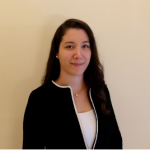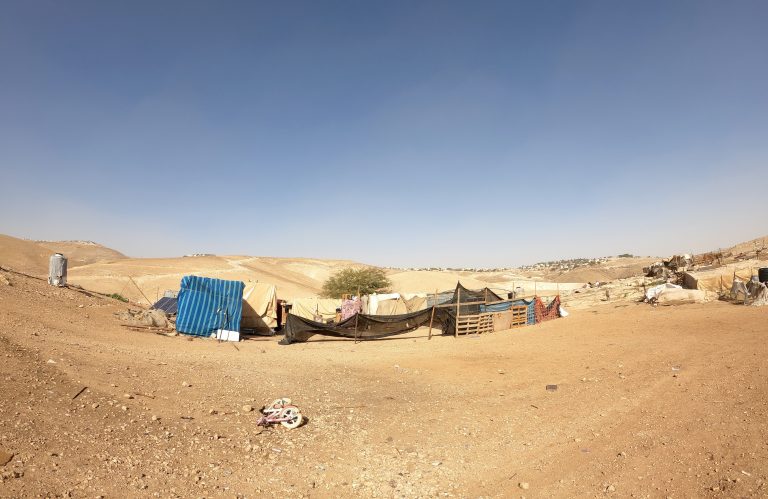

During my childhood, I always passed by these sandy hills during car rides from Jerusalem to Jericho for weekly family gatherings in the winter season. I remember how much I enjoyed gazing at the Bedouins and their tents, watching from afar how they gather around fires in groups, and enjoying the scene of shepherds walking their sheep. I was always wondering: how can our lives be so different when we live only 15 minutes away?
I had a closer encounter in 2018, when I joined a non-governmental organisation that supported mobile clinic visits to Bedouin communities, among other projects. I always enjoyed visiting and talking to community members about their health and health needs during these field visits. I also learnt more about the Bedouin culture, and have always admired their humbleness, generosity, wittiness, and resistance in the face of injustice.
I no longer work with the same organisation, but still enjoy visiting the communities, and like to support the local women’s wool needle-felting project. A few weeks ago, I visited ‘Um Saeed’ (name changed for privacy) in the Khan Al Ahmar area, to ask her about the health situation in her community.
Area C, which represents 60% of the West Bank in Palestine, is where Israel maintains full military and civil control. In this area, Israel bans the 180,000-300,000 Palestinian residents from constructing infrastructure and buildings, even for housing, health, education, or agriculture.1 Most Palestinians living there have no access to regular water or electricity.2
The community living in Khan Al Ahmar is one of many communities in Area C facing threats of forced expulsion by Israel. This expulsion enforces an ongoing plan to expand nearby illegal (under international law) Israeli settlements.3 As a result, native Bedouin communities are facing violence from Israeli settlers and military, and destruction of their crops and buildings.2 This in turn results in increased threats to their traditional ways of earning a living and accessing food, through herding. Most Bedouins are facing poverty and about 80% are food insecure.4
(Based on a short interview with Um Saeed)
Q- How do you access healthcare services nowadays?
Q- What do you do if you need specialised services?
Q- How has the healthcare situation here been during the COVID-19 pandemic?
Q- Were you provided with any outreach, such as COVID-19 testing or hygiene kits?
Um Saeed is one of thousands facing the same threats every day. It is evident that political and social factors are key determinants of the Bedouin population’s health in Palestine. Political constraints for development, threats of displacement, lack of work opportunities and poverty all aggravate the Bedouin’s inability to access healthcare.
The solidarity of international organisations and states against the ethnic cleansing of native populations in Palestine and elsewhere in the world is an essential advocacy effort to end this injustice. Without challenging the current political practices, these Bedouins will remain unable to practice their right to health and right to existence.
More from Rasha Kaloti here.
BCPHR.org was designed by ComputerAlly.com.
Visit BCPHR‘s publisher, the Boston Congress of Public Health (BCPH).
Email [email protected] for more information.
Click below to make a tax-deductible donation supporting the educational initiatives of the Boston Congress of Public Health, publisher of BCPHR.![]()
© 2025-2026 Boston Congress of Public Health (BCPHR): An Academic, Peer-Reviewed Journal
All Boston Congress of Public Health (BCPH) branding and content, including logos, program and award names, and materials, are the property of BCPH and trademarked as such. BCPHR articles are published under Open Access license CC BY. All BCPHR branding falls under BCPH.
Use of BCPH content requires explicit, written permission.